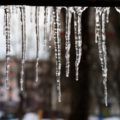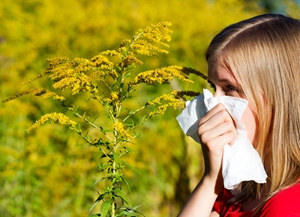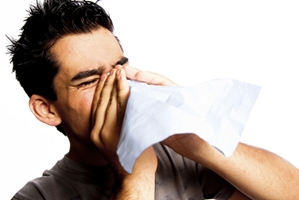
With a relatively mild summer on the books for 2014, many industry professionals are predicting an unseasonably warm autumn ahead. According to AccuWeather reports, people in the Southeastern part of the country could experience an especially rough few months as the weeks to come are sure to be warm and wet, which will promote mold spore growth and prolong the inhibitory ragweed season.
Generally speaking, the five weeks before and the five weeks after September 19 are historically the worst time for allergy sufferers. But this year, that range is expected to expand through October.
Because of the warmth of the forthcoming weather, plants that produce ragweed are expected to have extended growing time, meaning they will have a longer opportunity to produce pollen.
"Moisture can weigh down pollen, keeping it on the ground instead of in the air, according to the Asthma and Allergy Foundation of America," writes Jillian MacMath of the AccuWeather Report. "However, dampness will make the environment more conducive to mold growth."
In other parts of the country though, early winter freezes could eliminate the threat of an extended allergy season. Parts of the Northeast and Midwest are expected to have early-onset cold fronts that should kill weeds and bring ragweed season to an end by mid-September.
Even if the weather cooperates and removes allergy triggers early this year, sufferers should still have the best products for allergy prevention on hand. Whether it is medication, hypoallergenic bedding or a dehumidifier, there are many ways you can reduce your symptoms. For more information on how to help yourself through allergy season, visit Allergy Be Gone today.









